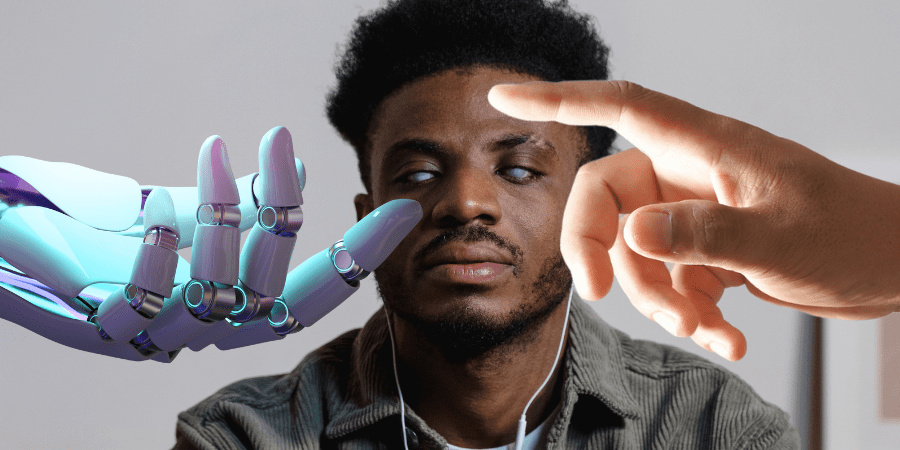
In this article, we’ll examine how Be My Eyes, a Danish startup, is transforming the lives of millions of people who are blind or have low vision by integrating cutting-edge GPT-4 technology into their app, providing an unprecedented level of support and independence.
Key Takeaways:
- Be My Eyes launches the GPT-4 powered Virtual Volunteer to enhance accessibility for the blind and low-vision community
- The technology offers contextual understanding, conversational capabilities, and analytical prowess unlike any existing image-to-text object recognition tools
- The new feature has the potential to revolutionize the lives of millions of people, granting them greater independence and access to information
The Power of GPT-4 in Be My Eyes:
Since 2012, the Danish tech company Be My Eyes has been dedicated to developing solutions for over 250 million people worldwide who are blind or have low vision.
Their app connects these individuals with volunteers who can assist them with daily tasks, such as identifying products or finding their way around an airport.
Now, with the integration of GPT-4’s visual input capabilities, Be My Eyes is taking a significant leap forward by creating a Virtual Volunteer™ that can generate contextual understanding and support at the same level as a human volunteer.
Enhancing Independence through Conversational AI:
Michael Buckley, CEO of Be My Eyes, has praised the exceptional performance of GPT-4, stating that the implications for global accessibility are immense.
The technology not only recognizes and names objects in images but can also analyze and provide valuable information based on the contents.
This level of interaction is game-changing, as it allows users to access helpful, beneficial information almost instantly.
Navigating the World with Virtual Volunteer:
Be My Eyes has already demonstrated the capabilities of its GPT-4-backed assistant in real-world scenarios.
For instance, one user was able to navigate a complex railway system with detailed instructions provided by the AI.
By offering step-by-step guidance, the technology ensures users can reach their desired destinations safely and efficiently.
Overcoming Screen Reading Challenges:
For a long time, screen reading software has been essential for people with blindness or limited vision.
However, these tools typically read web pages and desktop applications line by line, making the process slow and cumbersome.
GPT-4, on the other hand, can quickly identify the essential parts of a webpage and summarize them, simplifying tasks such as online shopping or reading the news.
Commercial Opportunities for Accessibility Technology:
The development of the GPT-4 powered Virtual Volunteer not only benefits humanity but also presents a significant commercial opportunity.
By prioritizing accessibility, businesses can better serve their customers and cater to the needs of the blind and low-vision community.
Be My Eyes plans to beta test the new feature with corporate clients in the coming weeks and roll it out as part of their Accessible CX™ offering later this year.
Conclusion:
The integration of GPT-4 technology into the Be My Eyes app represents a groundbreaking advancement in accessibility for individuals who are blind or have low vision.
The Virtual Volunteer feature offers an unprecedented level of support and independence, allowing users to navigate the world and access information with ease.
As this technology continues to develop and become more widely available, it promises to revolutionize the lives of millions of people worldwide.
 Sections of this topic
Sections of this topic















